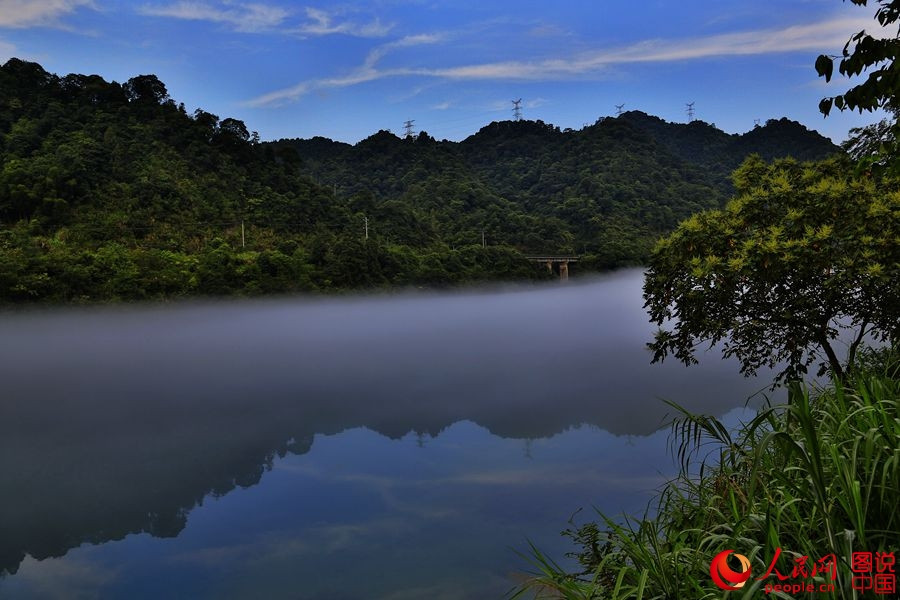 Vintage cars show kicks off in London
Vintage cars show kicks off in London
 Gorgeous scenery in NE China
Gorgeous scenery in NE China
 Picturesque Barkol grassland in Xinjiang
Picturesque Barkol grassland in Xinjiang
 Small Wild Goose Pagoda - A World Cultural Heritage Site along the Silk Road
Small Wild Goose Pagoda - A World Cultural Heritage Site along the Silk Road
 Maritime Silk Road Luxuries of the Han Dynasty
Maritime Silk Road Luxuries of the Han Dynasty
 Ciao! Chinese beauties!
Ciao! Chinese beauties!
 An eye feast: BFA freshmen registration
An eye feast: BFA freshmen registration
 Top 10 most lavish weddings
Top 10 most lavish weddings
 Most amazing chi-pao beauties
Most amazing chi-pao beauties
 Chinese lingerie brand arrives in Las Vegas
Chinese lingerie brand arrives in Las Vegas
BEIJING, Sept. 23 -- When tens of thousands of people took to the street in various countries to demand action on climate change, they hoped their voice could be heard by world leaders at a climate summit in New York.
Climate change again became a global focus as more than 120 world leaders are in New York for a one-day UN summit Tuesday aimed at setting the stage for a crucial conference in Paris in December 2015 that could finalize a new global climate change pact.
On containing climate change, the principle of "common but differentiated responsibilities," the cornerstone of the United Nations Framework Convention on Climate Change formed in 1992 and now ratified by 196 parties, should always be upheld.
First, the principle establishes the common responsibility of all states to protect the environment. More importantly, the principle requires states to protect the climate system in accordance with their differentiated responsibilities and respective capabilities as the largest share of historical and current global emissions of greenhouse gases has originated in developed countries.
However, debate between developed and developing countries on such issues as responsibility, capital and technology never ends, an important reason why previous climate negotiations hardly produced tangible results.
Some developed countries want to abandon the principle, which obligates them to make deeper cuts than poor countries and aid them in their efforts to contain climate change.
They argue that emerging economies will grow into strong powers and major emitters after 2020, and thus the distinction between the developing and developed countries' responsibilities should not hold.
However, we cannot put aside the past when we look into the future. The carbon dioxide currently in the atmosphere was mostly produced during the industrialization process of the developed countries.
From the start of the Industrial Revolution to 1950, the carbon dioxide emitted by developed countries accounted for 95 percent of global emissions. From 1950 to 2000, carbon emissions from these countries accounted for more than three quarters of global emissions.
Nowadays, a considerable part of developing countries' emissions are attributable to developed countries as the latter moved heavily polluting and energy-consuming industries to developing countries.
That is why developed countries, with abundant financial resources and advanced technologies, should shoulder major responsibilities and make tangible moves to deal with their high per capita carbon dioxide emissions.
That is why developing countries should also take initiatives to address global warming and strive not to advance their economies at the cost of the environment, like most developed countries did.
Luckily, some developing countries and also major carbon emitters, such as China, India and Brazil, have been committed to the legally binding targets on emission cuts.
The Chinese government has pledged a 40 percent to 45 percent reduction of carbon dioxide intensity by 2020 from the levels in 2005 and is committed to making every effort to achieve the target.
China saw carbon dioxide emissions per unit of gross domestic product drop 28.56 percent by 2013 from the levels of 2005, or a reduction of 2.5 billion tons of carbon dioxide emissions.
In the first half of this year, China's carbon intensity was cut by about 5 percent, the largest drop in many years. Energy consumption per unit of GDP dropped 4.2 percent year on year during the period.
It is highly advisable that developed countries show sincerity and take practical steps in fulfilling their obligations to provide funds for developing countries, transfer their advanced technologies and take a lead in substantially cutting carbon emissions.
 Military training in Hong Kong
Military training in Hong Kong Teahouses in Chongqing: Worship to the leisure lifestyle
Teahouses in Chongqing: Worship to the leisure lifestyle Giant white gourd weighing 87 kilograms appears in SE China
Giant white gourd weighing 87 kilograms appears in SE China Advanced arms help to safeguard China-ASEAN Expo
Advanced arms help to safeguard China-ASEAN Expo Leading director Wang Quan'an detained for 'buying sex'
Leading director Wang Quan'an detained for 'buying sex' Heaven on earth: Dongjiang Lake in Hunan
Heaven on earth: Dongjiang Lake in Hunan Mixed reaction to smartphone sidewalk
Mixed reaction to smartphone sidewalk Amazing aerial photos of China's Xisha Islands
Amazing aerial photos of China's Xisha Islands Top 10 world's highest-paid models 2014
Top 10 world's highest-paid models 2014 Lingerie show at 2014 Miss China
Lingerie show at 2014 Miss China Songstress Li Xianglan dies at 94
Songstress Li Xianglan dies at 94 Police recruiting posters
Police recruiting posters Anshun Daxi- Living fossil of Chinese drama
Anshun Daxi- Living fossil of Chinese drama Urban farmers in China
Urban farmers in China 'Firepower-2014 Weibei'military exercise
'Firepower-2014 Weibei'military exerciseDay|Week|Month